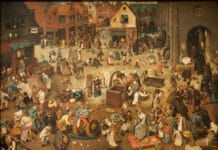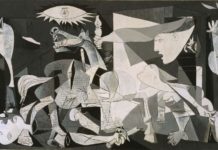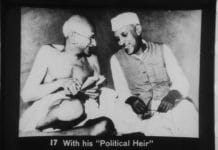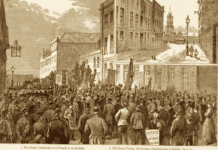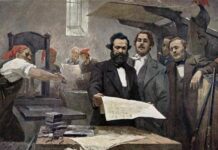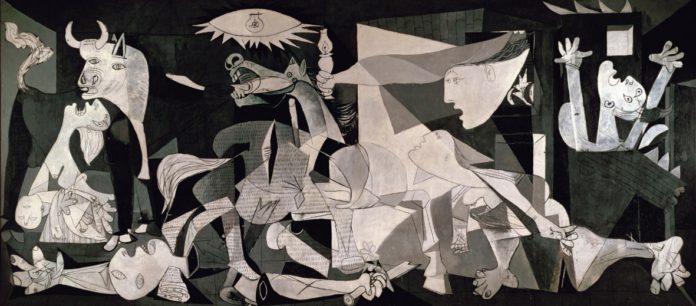
Socialistisk Biblioteks Tidslinje med links til begivenheder og personer i 1881.
Se også Index over personer, organisationer/partier og værker (som bøger, malerier, mm.), steder, begivenheder, mv., der er omtalt på hele Tidslinjen, titler og indhold på emnelisterne osv.
Bladliste
Nye blade 1881:
Brix’s Ravn
Herolden
Den radikale Ravn
Den radikale Socialist
Se:
Arbejderhistorisk bladliste, under året 1881.
1. januar 1881
Den franske revolutionære socialist Auguste Blanqui dør i Paris (født 1. februar 1805, se denne).
14. april 1881
Den marxistiske økonom Henryk Grossman fødes i Kraków i Polen (dør 24. november 1950).
Se:
- Henryk Grossman (Wikipedia.org)
- Henryk Grossmann (Marxists Internet Archive; Marxist Writers). Med bibliografi og hans hovedværk online: The Law of Accumulation and Collapse of the Capitalist System.
Capitalism’s accumulating crises: Henryk Grossman and the search for a Marxist theory of breakdown. By Tony Phillips (International Socialism, Issue 182, Spring 2024). Review of Henryk Grossman Works, Volume 3: The Law of Accumulation and the Breakdown of the Capitalist System, Being Also a Theory of Crises (Haymarket, 2022, 577 p.)
The End of Capitalism: The Thought of Henryk Grossman. By Andrew Kliman (Marxist-Humanist Initiative/With Sober Senses , May 27, 2022). Review of Ted Reese’s book (Zero Books, 2022, 216 p.). “Reese’s book is flawed, but the blame ultimately does not rest with him. He was playing a poor hand.” Se også anmeldelse af Reinout Bosch: Kapitalismens endeligt (Solidaritet.dk, 27. maj 2023)
Henryk Grossmann’s breakdown model: on the real cause of the fictitious breakdown tendency. By Andrew Kliman (Marxist-Humanist Initiative/With Sober Senses, October 7, 2021). “Despite my sympathies, I think I have an intellectual obligation, and a political obligation, to be a messenger of truth regarding the core of the book … In this article, I am to demonstrate that the model and the theory are fatally flawed.”
Economic crises are unavoidable under capitalism (Marxist Left Review, Issue 21, Summer 2021). “Rick Kuhn explores the debates about crisis theory among Marxist economists, focusing in particular on the work of Henryk Grossman.”
Antiracist history, crisis theory, and university workers’ struggles (Spectre, February 1, 2021). Charles Post recently talked with Rick Kuhn about Grossman’s relevance today, as well as some major, ongoing struggles by university workers in Australia.”
Grossman on capitalism’s contradictions (Michael Roberts Blog, December 5, 2017). Review of Henryk Grossman, Capitalism’s contradictions: studies in economic theory before and after Marx, edited by Rick Kuhn (Haymarket Books, 2017, 304 p.). See also review by Pete Green (Marx & Philosophy Review of Books, 12 March 2018)
‘Fifty years of struggle over Marxism, 1883-1932’ (pdf) (1932). By Henryk Grossman (Society of Heterodox Economists Conference, University of New South Wales, Sydney, 2-3 December 2013, 43 p.; online at Digital Collections). See review by Susie Helme: Revisiting a Marxist classic (International Socialism, Issue 148, Autumn 2015)
Marxist crisis theory to 1932 and to the present: reflections on Henryk Grossman’s ‘Fifty years of struggle over Marxism’. By Rick Kuhn (Society of Heterodox Economists Conference, University of New South Wales, Sydney, 2-3 December 2013, 11 p.; online at Digital Collections)
Introduction to “The Change in the Original Plan for Marx’s ‘Capital’ and Its Causes” [an essay by Henryk Grossman] (pdf). By Rick Kuhn (Historical Materialism, Vol.21, No.3, 2013, p.117-137; online at Digital Collections/Internet Archive)
The change in the original plan for Marx’s “Capital” and its causes (pdf) (1929). By Henryk Grossman (Historical Materialism, Vol.21, No.3, 2013, p.138-164; online at Digital Collections/Internet Archive)
Economic crisis and the responsibility of socialists. By Rick Kuhn (International Socialist Review, Issue 68, November-December 2009). “Henryk Grossman is particularly relevant today and not only because of his explanation of economic and financial crises, which I will briefly recapitulate.”
On Henryk Grossman, a revolutionary Marxist (Radical Notes, 9 April 2007). An interview with Rick Kuhn.
Henryk Grossman on imperialism (pdf). By Rich Kuhn (Michael Roberts Blog, July 2017, 9 p.). “Paper for ‘New directions in Marxist theory’, Historical Materialism Conference School of Oriental and African Studies, London 8-10 December 2006.”
Reviews and appraisals of Rick Kuhn’s Henryk Grossman and the recovery of Marxism (Rick Kuhn’s site; online at Internet Archive)
Forgotten treasure: a new biography of Grossman. By Chris Harman (International Socialism, Issue 114, Spring 2007). “Kuhn’s biography includes a fascinating account of the debates the theory produced. But there is much more to it than just that. For Grossman was a committed revolutionary activist in one of the most tempestuous parts of Europe long before he became known as a Marxist economist.”
An introduction to Henryk Grossman. By Louis Proyect (March 21, 2008). “Rick Kuhn has been devoted to re-establishing Grossman’s reputation since 1993. His preface gives reasons why.”
Why Grossman still matters. By James Heartfield (Spiked, Issue 3, July 2007). “A brilliant biography of Polish economist Henryk Grossman shows us the man – with silk white gloves and cane – behind the Marxist analysis.”
Henryk Grossman: Capitalist expansion and imperialism (International Socialist Review, Issue 56, November–December 2007). “Rick Kuhn looks at the work of a Polish Marxist.”
Economic crisis and socialist revolution: Henryk Grossman’s Law of accumulation, its first critics and his responses (pdf). By Rick Kuhn (22 February 2004, 31 p.; online at Digital Collections/Internet Archive)
Capital development (Socialist Review, Issue 245, October 2000; online at Internet Archive). “Why does the capitalist system go into crisis? Rick Kuhn looks at the life and work of an economist who developed Marx’s work in capital.”
The permanent crisis: Henryk Grossman’s interpretation of Marx’s theory of capitalist accumulation. By Paul Mattick (International Council Correspondence, Vol.1, No.2, November 1934; online at Marxists Internet Archive)
Litteratur:
Henryk Grossmann: The Law of Accumulation and Breakdown of the Capitalist System: Being also a Theory of Crises. Translated and abridges by Jairus Banaji (Pluto Press, 1992, 210 p.; online at Marxists Internet Archive). Foreword (p. ix-xiii) + Introduction by Tony Kennedy: Henryk Grossmann and the theory of capitalist collapse (p.1-27).
The complete edition: Henryk Grossman Works, Vol.3: The Law of Accumulation and Breakdown of the Capitalist System, Being also a Theory of Crises. Translated by Jairus Banaji and Rick Kuhn (Brill, 2021, 588 p.).
Henryk Grossmann: Marx, den klassiske nationaløkonomi og dynamikken (Rhodos studie-serie, 1975, 120 s.). Med forord af Paul Mattick (s.7-22) + tillæg med breve fra Grossmann til Mattick (s.95-119)
Se også:
Linkboxen om Paul Mattick, 1904-1981 (Socialistisk Bibliotek)
28. april 1881
Den danske læge, kommunist og trotskist Georg Moltved fødes. (Dør 6. marts 1971, se denne)
25. oktober 1881
Den spanske maler Pablo Picasso fødes i Malaga. Dør 8. april 1973.
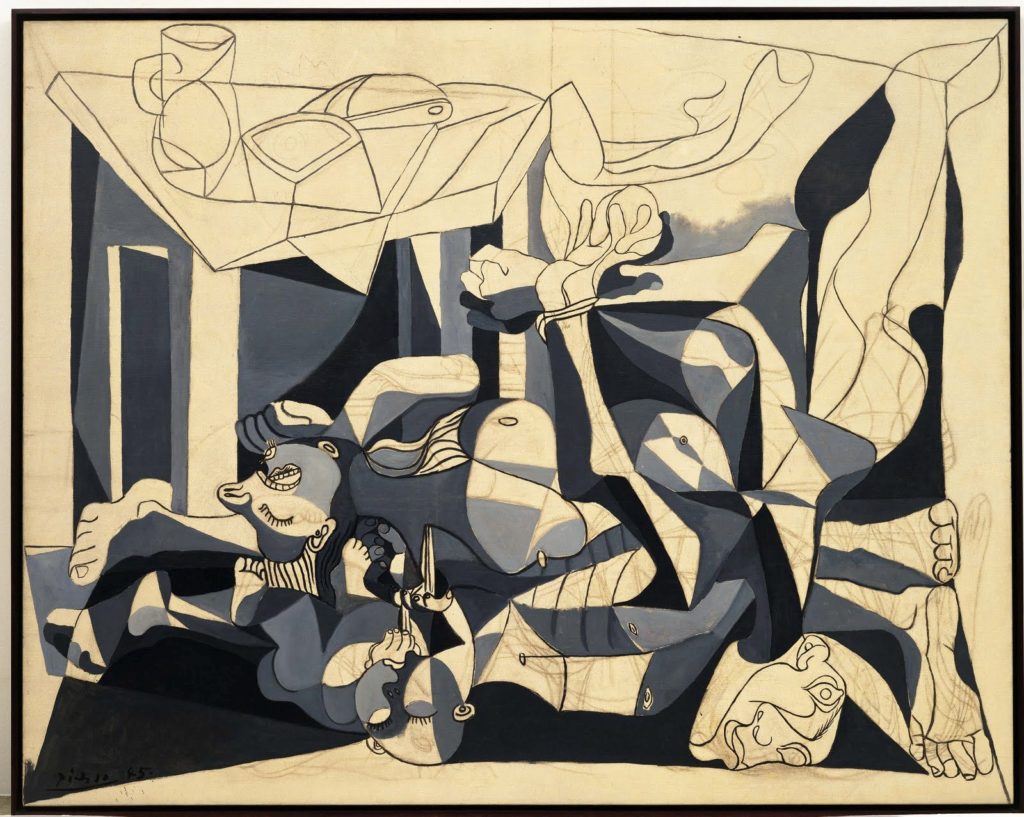
Se:
- Picasso, Pablo (Leksikon.org)
- Pablo Picasso (Denstoredanske)
- Pablo Picasso (Wikipedia.org)
- Pablo Picaso (Artwork). Contents: Overiews, Works, articles etc.
Picasso Fred og Frihed (11. februar – 29. maj 2011). Udstilling på Louisiana (online på Internet Archive). Med video, YouTube (3:59 min.) og udstillingenstekster.
Mellem politisk aktivist og skabende geni. Af Gert Poder (Arbejderen.dk, 19. februar 2011). “Pablo Picasso kæmpede mod fascisme, krig, magtbegær og undertrykkelse, de sidste 40 år som medlem af det franske kommunistparti. Det viser en udstilling på Louisiana.”
Musical introduction to Picasso (YouTube, 5:28)
Articles in English:
Pablo Picasso was a Communist. Why don’t we ever talk about this? By Liza Featherstone (Jacobin, June 5, 2023). “In the imbroglio over Picasso’s misogyny and many personal flaws, the memory of his unabashed leftist politics has been lost — and with it our ability to fully consider his place in history.”
Picasso’s sculpture at the Museum of Modern Art in New York. By Clare Hurley (World Socialist Web Site, 18 January 2016). “Unfortunately, the Museum of Modern Art’s current exhibit of Picasso’s sculpture—the first major US museum survey in the last 50 years—fails to communicate anything particularly significant about the legendary artist’s interpretation of the social reality and times through which he lived.”
Pablo Picasso at the Art Gallery of Ontario: An artist apart. By Lee Parsons
(World Socialist Web Site, 6 June 2012). “Notwithstanding the veneration he still tends to inspire, questions remain about his legacy and the evolution of modern art in general. There is also the matter of Picasso’s political role, often passed over in silence or treated uncritically.”
Picasso: art that was part of the fight for peace (Socialist Worker, Issue 2203, 29 May 2010). “Mike Gonzalez finds a yearning for peace and justice at the heart of Pablo Picasso’s work on display at the Tate Liverpool.”
A revolution in paint: 100 years of Picasso’s Demoiselles. By John Molyneux (International Socialism, Issue 115, Summer 2007, p.162-176). “By far the most frequent comment on Les Demoiselles, in both journalism and art history, is that it marks ‘the birth of modern art’. Let us first consider the justification for, and truth of, this bold claim.”
Modern rebel – Pablo Picasso. By Chris Nineham (Socialist Review, Issue 204, January 1997; online at Internet Archive). “He was an artistic rebel who became fantastically wealthy. He was an experimental artist who hated much about the modern world, and his paintings, which so often baffled and shocked the establishment, are among the most reproduced images in the world part of our visual language.”
In pursuit of abstract peace (Socialism Today, Issue 140, July-August 2012). Paul Gerrard reviews ‘Picasso: Peace and Freedom’, Tate Liverpool 2012. “The particular irony of Picasso as the most expensive artist in the world is that, for the last 30 years of his life, he was a committed member of the French Communist Party (PCF), and it is on Picasso’s later political and anti-war paintings that this exhibition at Tate Liverpool focuses.”
Picasso and African Art. By John Molyneux (Blog, October 2, 2006). “What Picasso found in African art was the key, or one of the keys, to a new way of seeing and representing the world and a profoundly new conception of art, which broke more decisively than ever before – the break had been building for decades – with the dominant European art tradition.” Followed by Art versus War (October 2, 2006)
Introduction to John Berger on Picasso. By Mike Gonzalez (International Socialism, Issue 40, Autumn 1988, p.105-110). “Even dead, Picasso provokes controversy. The public argument about the recent exhibition of drawing and paintings from Picasso’s last twenty years, has driven some critics to near apoplexy.”
Defending Picasso’s late work. By John Berger (International Socialism, Issue 40, Autumn 1988, p.111-117). “The last period of Picasso’s life as a painter was dominated by the theme of sexuality. Of the two hundred works shown in the Tate exhibition this summer, three-quarters show women or couples observed or imagined as sexual beings.”
Se også på Socialistisk Bibliotek:
- Tidslinjen: juni/juli 1907, om maleriet “Les Demoiseles d’Avignon” (Frøknerne fra Avignon).
- Tidslinjen: 26. april 1937, om bombningen af Guernica og om Picassos maleri.
25. december 1881
William Gallacher fødes i Paisley, Scotland, en af lederne i bevægelsen Red Clydeside efter I. Verdenskrig og kommunistisk MP, 1935.
Se:
William Gallacher (Spartacus Educational).
William Gallacher (Wikipedia.org)
William Gallacher Archive (Marxists Internet Archive). Articles 1915-1953.
Litteratur:
Revolt on the Clyde. By William Gallacher (London, Lawrence & Wishart, 1936). New edition 2017 (Lawrence and Wishart, 201 p.). See review by Richard Allday (Counterfire, March 29, 2018).
















